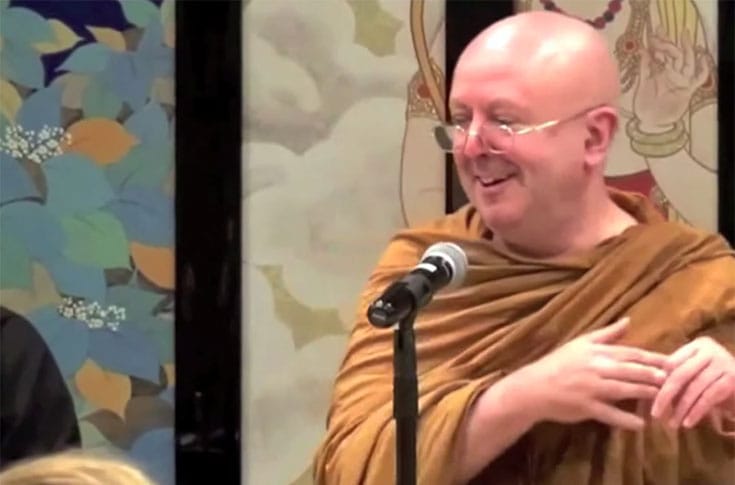The Buddhist monk known as Ajahn Brahm talks about developing a sense of contentment, and not finding fault in your meditation practice.
Restlessness arises because we do not appreciate the beauty of contentment. We do not acknowledge the sheer pleasure of doing nothing. We have a faultfinding mind rather than a mind that appreciates what’s already there. Restlessness in meditation is always a sign of not finding joy in what’s here. Whether we find joy or not depends on the way we train our perception. It’s within our power to change the way we look at things. We can look at a glass of water and perceive it as very beautiful, or we can think of it as ordinary. In meditation, we can see the breath as dull and routine, or we can see it as very beautiful and unique. If we look upon the breath as something of great value, then we won’t get restless. We won’t go around looking for something else. That’s what restlessness is, going around looking for something else to do, something else to think about, somewhere else to go—anywhere but here and now. Restlessness is one of the major hindrances, along with sensory desire. Restlessness makes it so hard to sit still for very long.
Contentment is the opposite of a faultfinding mind.
You should develop the perception of contentment with whatever you have, wherever you are, as much as you can—and beware of finding fault in your meditation.
Watch the silence and be content to be silent. If you’re truly content, you don’t need to say anything. Don’t most inner conversations take the form of complaining, attempting to change things, or wanting to do something else? Or escaping into the world of thoughts and ideas? Thinking indicates a lack of contentment. If you’re truly contented, then you’re still and quiet. See if you can deepen your contentment, because it is the antidote for restlessness.
Even if you have an ache in the body and don’t feel well, you can change your perception and regard that as something quite fascinating, even beautiful. See if you can be content with the ache or pain. See if you can allow it to be. A few times during my life as a monk I have been in quite severe pain. Instead of trying to escape, which is restlessness, I turned my mind around to completely accept the pain and be content with it. I have found that it is possible to be content with even severe pain. If you can do that, the worst part of the pain disappears along with the restlessness. There’s no wanting to get rid of it. You’re completely still with the feeling. The restlessness that accompanies pain is probably the worst part. Get rid of restlessness through contentment, and you can even have fun with pain.
Develop contentment with whatever you have—the present moment, the silence, the breath. So if you ever see restlessness in your mind, remember the word contentment.
Wherever you are, develop contentment, and from that contentment—out of the very center of that contentment—you’ll find your kindfulness will deepen.
Reprinted from Kindfulness, by Ajahn Brahm, with permission of Wisdom Publications.
